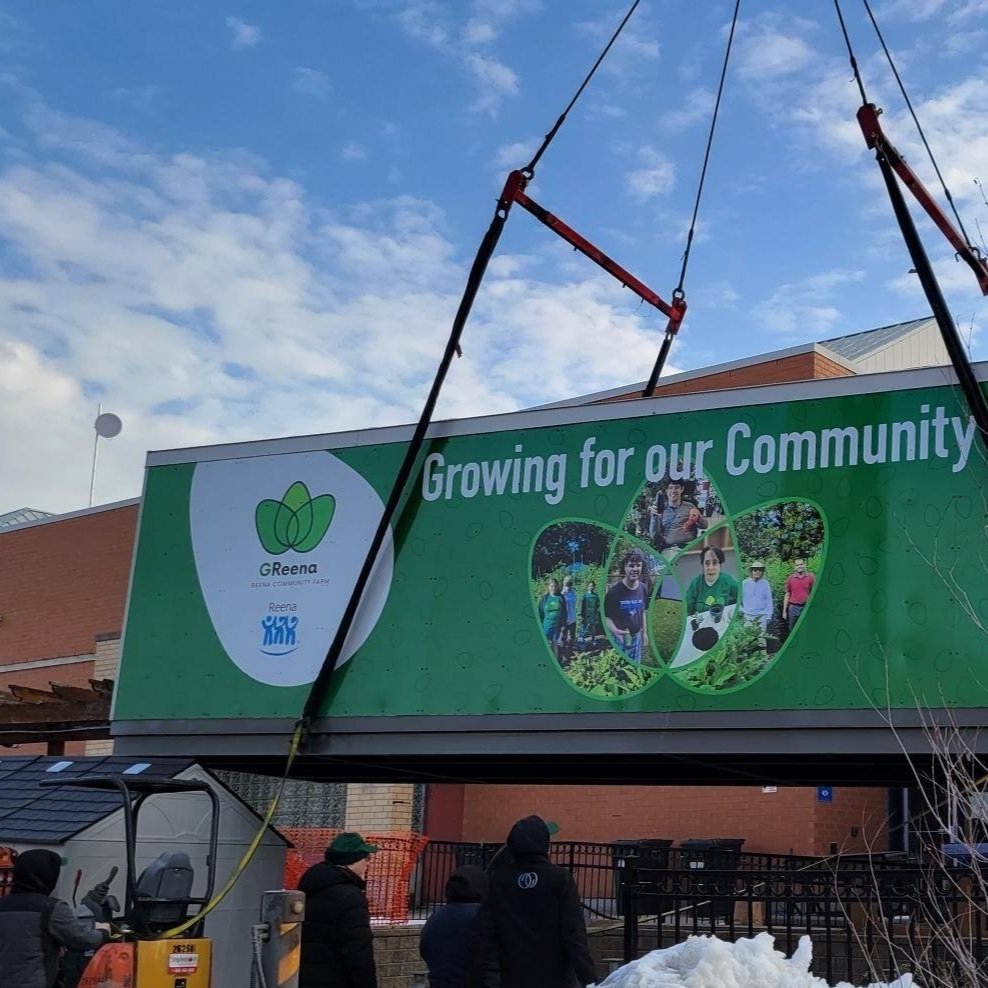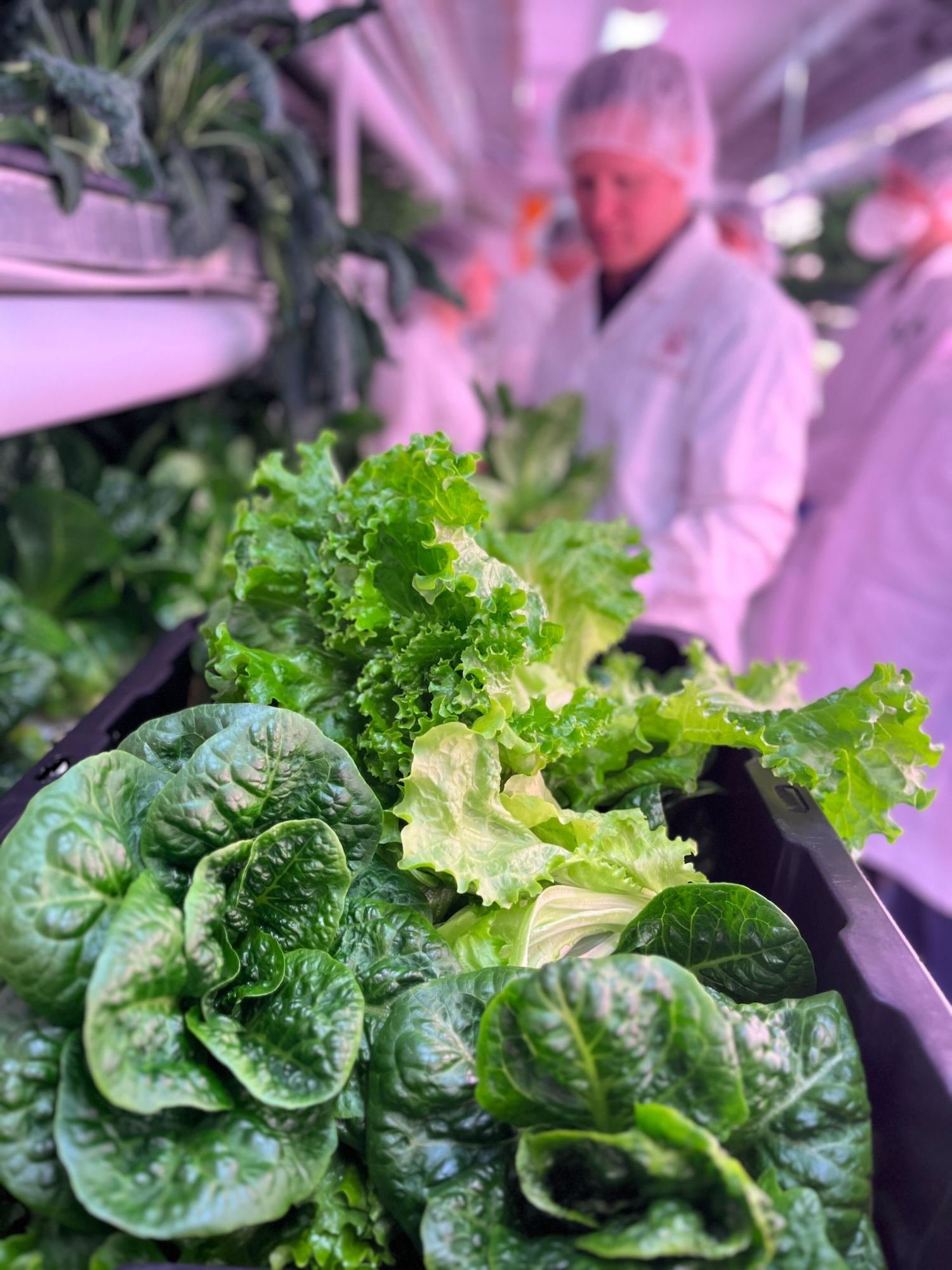Rooted in Knowledge: FAQs About Horticulture Technicians, Farm Support and Growcer Farms
How does our team impact the success and health of your Growcer farm?
First: What is a Horticulture Technician?
Horticulture Technicians are all about plant health. Their role records and tracks plant growth, makes sure that the plants receive the right amount of water and nutrients, and to carry out treatment if—or when—a plant shows signs of disease or pest damage. They can work either in outdoor agriculture environments, or indoors working with hydroponic production systems or in greenhouses.
At Growcer, we do things a little differently.
One day our technicians could be focused on administrative work, and the next, they’re catching a flight to one of our farm installs. They are part of the aptly named, FaST team.
Second: What is a Farm Support and Training Technician? (FaST)
A FaST team member is more than your typical horticulture technician. Yes, they are pros at plant health, but their skills and expertise go above and beyond.
You’ll find FaST team members:
-
Going on-site to commission your farm (setting it up and making sure it’s running as you expect)
-
Training you on how to run your farm (safety first! then everything from plant health to harvesting techniques)
-
Creating and providing you with Standard Operating Procedures (SOPs) so you have all the tools you need to effectively grow delicious produce
Q&A with Growcer’s Customer Success team
What happens on the day your farm gets delivered? What does Growcer do?
On delivery day the farm arrives during a scheduled window of time and we work with you to find what works best.
Once the farm is placed, and secured, you take the keys and walk on in! Your farm will contain much of your supplies to get you growing (to save time and money, we use the farm to ship you your materials vs. separate shipments).
A customer farm being craned into place - always an exciting day!
The FaST team will arrive to fully unpack and commission your farm once all the utilities are hooked up. That on-site visit is for a week, and during that time we spend a few days training you so you are ready to get growing.
What does it take for a farm to “work”?
Our modular farms are built to be turn-key and require minimal set up.
You will need:
-
Space: We recommend a 4’ clearance area around the farm, so a 48’ by 18’ total clearance area is recommended. Growcer’s farms are National Building Code compliant and Growcer assists with zoning, site selection and building permits.
-
Water: You can connect your farm directly to a water source or have the option to fill with a garden hose or water truck. A Growcer farm requires approximately 1,900 to 2,200 litres (L) of water per month.
-
Power: You will require a 200A 240-volt single phase power supply. On-site or hired electricians complete the hook-up. Backup generator add-ons are also available.
-
Internet: A hardwired internet connection is preferred, but other options are possible. A dual-band router is recommended for maximum compatibility with existing and future components.
-
Grower: Someone (maybe you!) to run the farm. We provide you with all the training you need through our phased training program that includes individual (at your own pace) learning, hands-on training (at your farm) and virtual support (for 2-3 months after).
-
Storage: Once you start harvesting, you’ll need a dry and refrigerated place to store all your produce. You can source ready-to-go fridges from Growcer or work together to evaluate other options.
Growcer also assists with zoning, site selection and local building permits for your area.
Every step of the way, we work closely with you to ensure effective onboarding and training. During the project planning stage, we work alongside you on business feasibility planning, distribution planning, packaging development, and more.
Growcer farms are designed to be user-friendly and people from various backgrounds have been trained on how to grow produce using the technology.
How technical are all the elements inside the farm?
Our farms are designed to be user friendly. Growcer farm technicians (aka the FaST team) spend five days commissioning the farm, and within those five days there are a few training days to ensure you are comfortable running your farm.
There are a few tasks that are hands-on and some others that are controlled by an automation system.
The hands-on tasks in the farm include regular maintenance and activities such as cleaning, nutrient mixing, sensor calibrations, seeding, transplanting, and harvesting. Within the farm, the automated tasks include the lighting schedule, temperature and humidity control, and nutrient dosing in the main growing area.
You’ll note that the automated tasks are the ones that really provide you with the flexibility to combine running a Growcer farm with the rest of your life. You don’t need to be there at set times to turn the lights on or keep track of nutrients.
What does a Farm and Support Training Technician (FaST) do versus a Growcer grower?
You’re not growing alone, because the FaST team provides training and support to you to ensure you have all the tools and knowledge you need to safely grow delicious greens.
The FaST team member spends a week with you, in your community, commissioning your farm and providing you with hands-on training so you are ready to grow.
Don’t worry, we don’t just leave after the in-person training.
There’s a remote training portion that follows for 2 to 3 months during which we meet with you regularly to ensure you’re comfortable -those new farmer jitters and worries are real and we are here to support you!
➡️ How many hours per week does it really take to grow produce year-round?
Environmental control software ensures you have a second set of eyes making sure your plants are comfortable.
What are the standard operating procedures? How do they help customers?
Standard Operating Procedures (SOPs) outline every task that is required to operate the farm. Each SOP starts with an overview of the task, safety considerations, tools you need and then dives into the activities.
Our SOPs cover all aspects from shipping and receiving to harvesting and packaging - daily tasks to quarterly tasks.
Are these 100% perfect? Of course not! We learn from growers and are always looking to streamline where we can. What we can promise is that you’ll receive the latest and greatest via annual updates or if there are major updates, we provide those as needed.
What are the different ways that Growcer supports its grower network?
We’re here to help with any questions or situations you may encounter through our support email, available 24 hours, which is monitored by the entire FaST team.
Do Growcer farms use software? What does it help you do?
Our farm uses two categories of software:
-
The first category helps monitor and control the environment inside your farm (temperature, humidity, nutrient levels and more). We use this data to help ensure your farm is running as you’d like.
-
The second category helps with production tracking to make sure you’re optimizing the farm’s production with a harvest plan and schedule.
The long and short of it? We’re here to see you succeed.
Growcer’s commitment to “get and keep you growing” isn’t just something we say. Every step of the way—from planning to onboarding and beyond—we work closely with you to ensure your business is successful and thriving.
Whether you’re a beginner or an experienced green thumb, Growcer’s training program allows anyone to unlock the power of hydroponic growing with container farms and provide fresh, local food year-round.
Growcer’s customer success team provides ongoing support for the entire lifespan of your farm. To date, we’ve trained more than a hundred growers to grow hydroponically year-round and add over 10 million servings of nutritious vegetables across Canada! 🥬
Want to try out life in a Growcer farm?
Join us for Rootcamp!
Rootcamp is Growcer’s own bootcamp: an in-person experience that gives you a foundation for hydroponic farming and demystifies life in a Growcer farm to save you time and money down the road.
You’ll get hands-on training in a real Growcer farm; preparedness for site prep, finances, and distribution; solid foundational knowledge with in-class instruction and so much more.
Our next Rootcamp is October 30-31 in Ottawa, Ontario!






